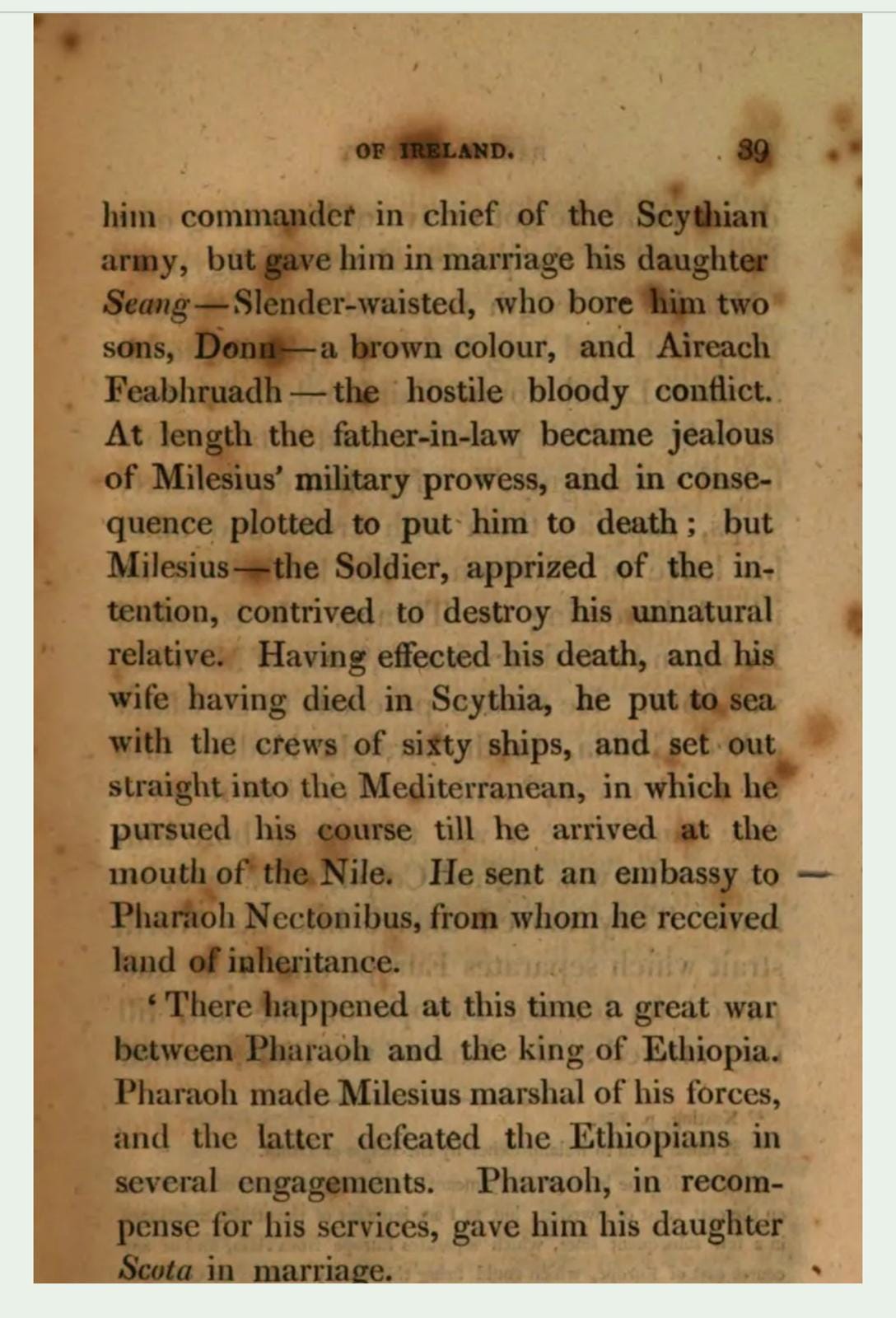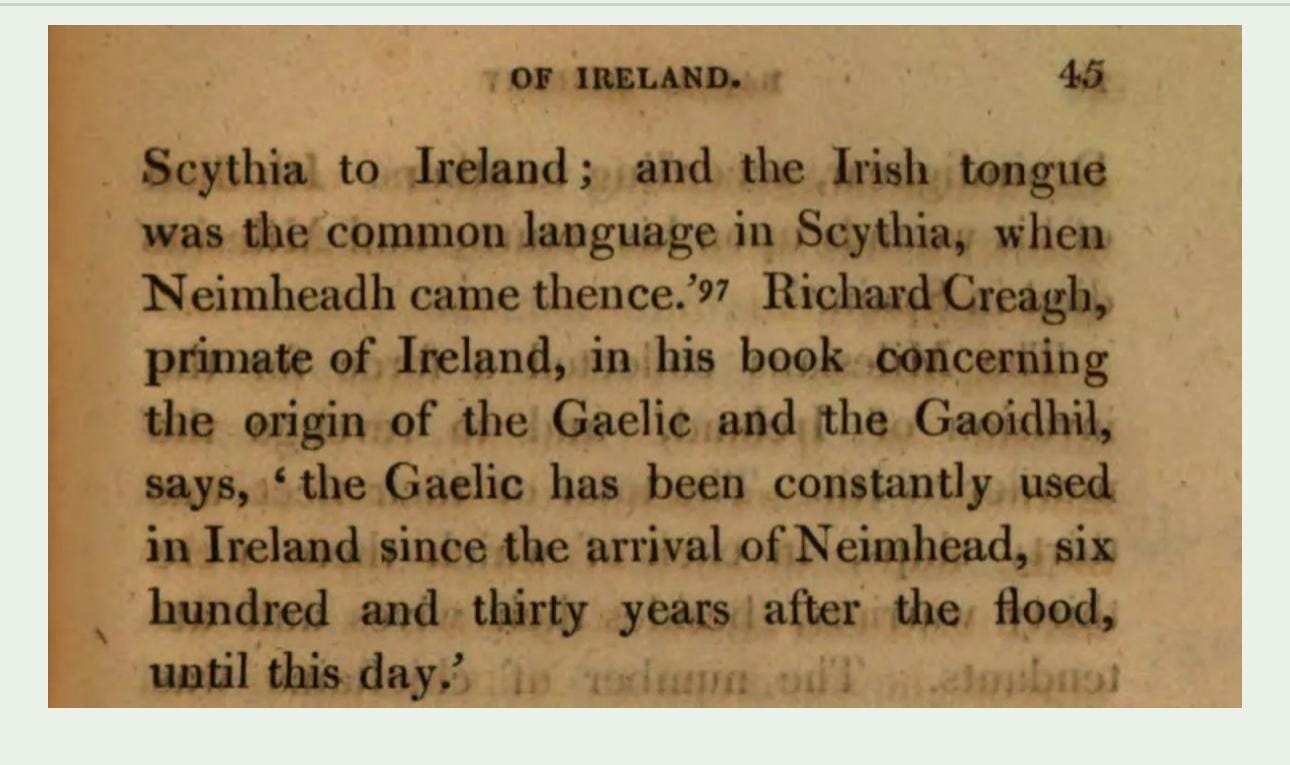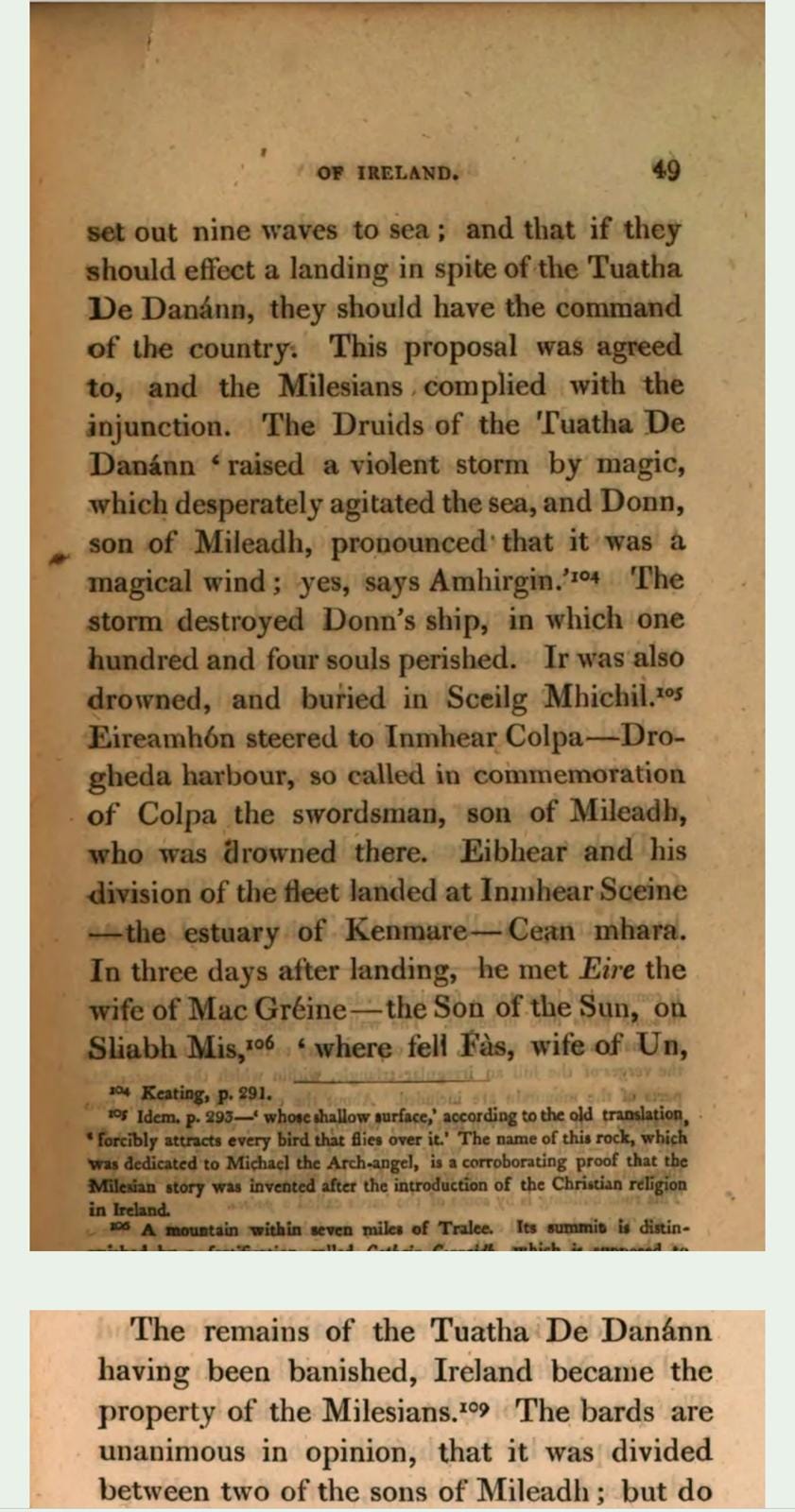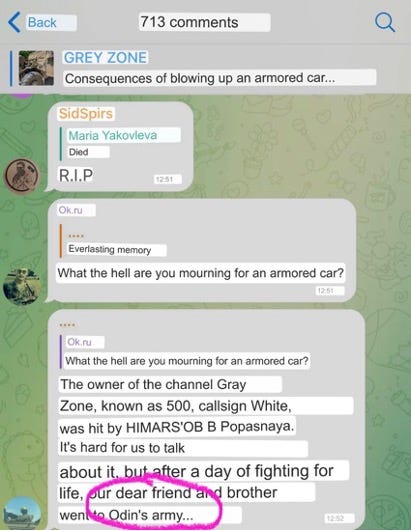Book of Invasions
Færytale Beginning IX: Counter Disinfolklore ~ Controlling War Magic

Sometimes I wore the mantle of “Hostage,” ambiguously held captive for hours by Russian bridge trolls who were trying to make one point or another to my diplomatic mistresses and masters in Vienna.
And, yes, some days actual goats crossed the bridge, and negotiating their safe passage was every bit as fraught and difficult as it was for the three billy-goats of lore.
This was a liminal zone. A fault-line between two civilizations.
When mists rose over the Donets of an early winter morning, the Muses incanted a clumsily portentous song. In ancient Irish and Welsh mythology looming fog portends Otherworldly journeys.
That bridge, like Hades in Greek mythology, performed the function of a portal between two opposed realities. On one side a Russia-occupied totalitarian fake “state.” The House of Lies, where Russian Disinfolklore addled minds and prepared its consumers to sacrifice themselves in the name of Ruschism. And on the other, democratic Ukraine.
Even the name of this eastern-most region of Ukraine “Luhansk” summoned the supreme Celtic god Lugh / Lugus, who is memorialised in English culture as King Lear. For a millennium before Christ Lugh’s writ had run from Ukraine as far west as Ireland and as far south as the Pillars of Hercules.
The Donetsk region of Ukraine takes its name from the Donets River. Like Crimea and Luhansk, Donetsk had been partly occupied by the Russians since 2014.
Donetsk also had a name associated with pre-Christian Indo-European religion. According to an early eighth century Irish text, Donn was the deity for whom all poetry was composed – “poetry” was that era’s Disinfolklore, and counter Disinfolklore.
The caste of poet in early Irish, as in early Indian society, and across the whole of the Indo-European cultural zone, also performed the role of singing praises and justifying the rightful reign of their monarch, through songs, incantations, legislation, prayers, and propagating the official history of the regimes they served and conjured into being.
The *lex lexeme that means “law” across communities which speak Indo-European languages manifests in the words “Legend,” “Lore,” “legacy,” “write” as in “legibly,” “Legitimate,” and “Legislation.
Knowing this, it is easier to see how sovereignty depends on the writer, lawyer, law-giver, legend-teller (or, as we might say today, Disinfolklorist), sermon-delivering priest (Magus), philosopher, and poet in Indo-European cultures.
As a law student at Cambridge, I was taught through common law cases that were essentially stories carefully structured so that the principles immanent in them could be elucidated.
Often legal, poetic, story-telling, and rhetorical skills have been mastered (Magistered) and ministered by the same person whose importance in administering a state run in accordance with the Indo-European model of Good Governance cannot be overstated.
In the “Book of Invasions” the twelfth century Irish scribes wrote down a much older story of Ireland’s conquest by the Milesians.
Those monks told of how Donn’s grandfather had been the king of Scythia (an old name for Ukraine). Even today, Ukraine’s great rivers sound for Donn: the Don, which in antiquity marked Europe’s border with Asia, flowed through Ukraine’s historical lands into the Azov Sea.
I lived for four years on the banks of the Dniepr (Don Hyper) river that, like the Danube and the Dniester (Don Istris), also flows through Ukraine, and into the Black Sea.
(On 28 June 2024, Russian missile destroyed an apartment building in the Dnipro neighbourhood I lived in 2018-2022. Donn is part of the name of the Dniepr River from which Dnipro is derived).
In pre-Christian Irish religion Donn was the first Irish king to die. Donn drowned himself when, after defiantly and proudly speaking of his qualities to the wind, he refused to take shelter from the storm.
Donn’s boat had been just beyond the seventh wave from the island of Ireland. Espying the incoming invaders, the then occupiers of the island - the Tuatha de Danaan, the community who worshipped the Goddess Danu - used War Magic to summon a storm. Disinfolklore is hyper-modernity’s manifestations of such War Magic - Disinfolklore conceals and muddles “cause” and “effect” in the minds of those who are hacked by Disinfolklore. We will soon look at War Magic in more detail.
Despite Donn’s death, his brothers, including Érimón, guardian of Ireland’s Mana, and Amergin, Ireland’s first judge, druid, poet, and magician king, landed and, overcoming the Tuatha de Danann’s War Magic, defeated them in battle.
Donn like many other founding kings of Indo-European cultures (for example, Odin, Yama, Yima, Ymir, Brennnos (Bran and Brân), Rymus (and Romulus), *Yemo) sacrificed himself so that the culture he would found could thrive.
Donn, like Odin, Yama, Yima, and Ymir, became a Lord of Death. When it is time for Irish people to die, Donn welcomes us into the afterlife which was known in Irish culture as the “House of Donn” and is located off the south-west coast of Ireland.
We will return to this idea later, particularly as the Russian army Nazi-ideology worshipping “Wagner” unit’s Disinfolklore production factories often wrote of their dead soldiers going to Odin, the Germanic / Norse God shamanic, trickster, Lord of Death, and God of runes who is memorialised as our Wednesday (*Wodhanaz Dyēus). Odin / Woden / Wodhanaz (there are many different spellings of his name whose “din” element is, incidentally, cognate with Donn) killed himself by hanging, through nine days and nights, stuck with spear, on a windswept World Tree by the Royal Mound in Uppsala, Sweden.
“One of the strangest accounts of this self-sacrifice so that his culture might live is in the ancient “Havamal” where Odin himself characterises his self-sacrifice as an act in which “myself (was) given to myself”.”
During the summer of 2022, a Ukrainian missile strike on one of the Chef of Disinfolklore’s “Wagner” army bases in Russia-occupied Popasna killed the head of its Disinfolklore propagating online Greyzone social media channel. Russia’s genocidal soldiers in Ukraine then consoled themselves over the death that he had gone to “Odin’s army.”
Lugh, Donn (and Odin) were aspects of the ancient Ukrainian supreme sovereign deity “Sky Father.” In the Ancient Ukrainian language (Proto-Indo European) from which all Indo-European languages evolved *Dyēus pḥᵃtḕr (literally: “Sky Father”) is how we today write the sound Ancient Ukrainians used to invoke this deity (even the words “day” and “deity” come from the *Dyēus part of Sky Father’s moniker). Dis Pater, whom Caesar said the Celts worshipped, the Greek supreme God of Zeus Pater and the supreme Roman God Iuppiter (Jupiter) were, along with Lugh, Donn, and Odin functional, cultural, and religious descendants of Ancient Ukraine’s Sky Father.
Often while I crossed the Donets River, I would see Ukrainians with their possessions in Dunnes Stores plastic reusable shopping bags. I was perhaps one of the only people ever on that bridge who knew that Dunnes Stores was a chain of Irish shops named for a family whose name demonstrated descent from Donn (I never did solve the mystery about how someone in Russia-occupied Ukraine had gotten what must have been many thousands of Dunnes Stores bags).
Continued:
Who’s immune to the Big Bad Disinfolklore?
Perhaps I was predisposed to associate scenes in Arcadian rural Central Europe with folklore. Until this unasked-for war against Ukraine came to visit, the biosphere reserve which surrounded the bridge at Stanitsia Luhanska was as idyllic a place as you are likely to find on Lugh or Donn’s earth.
Continued from:
The Idiot
I had a ringside seat while Russian Disinfolklore brainwashed some Ukrainians in Russia-occupied Ukraine into thinking, wrongly, their fellow Ukrainians wanted to kill them. There is a similar pattern of designed division we have seen with less deadly consequences (so far) rising elsewhere in the world.
For orientation purposes: this is where we are now:
First in series:
Bridge to the House of Lies
Chapter One - Færytale Beginning My intuition about Disinfolklore first manifested while I was a peacekeeping diplomat. Between 2015 and 2018, I was posted on a bridge spanning the eastern Ukrainian Donets River at Stanitsia Luhanska. That wooden and iron bridge was the only pedestrian crossing place between Russia-occupied Luhansk and the rest of Ukrain…














